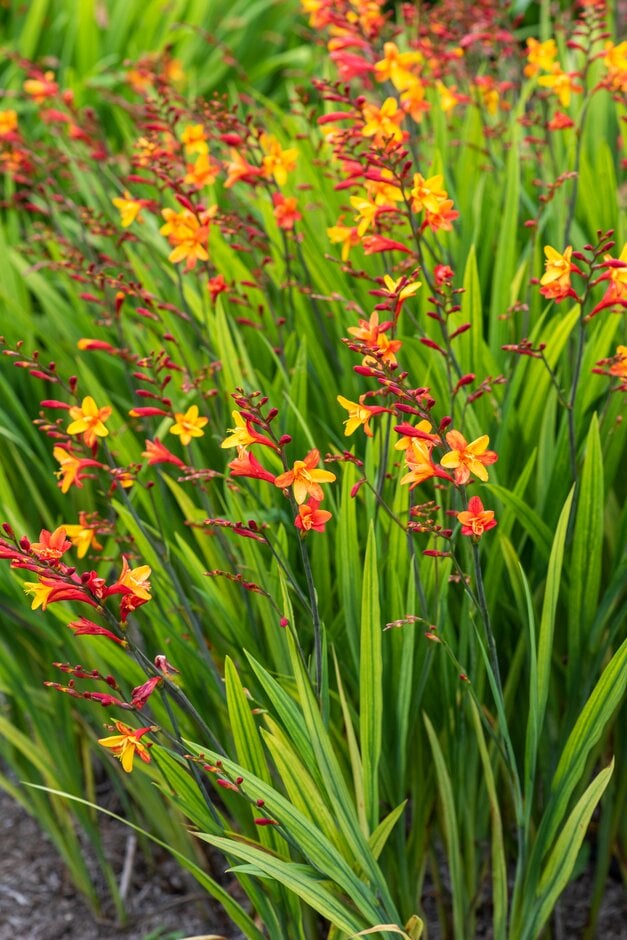Crocosmia × crocosmiiflora 'Harlequin'
montbretia 'Harlequin'
A bulbous herbaceous perennial with upright, lance-shaped dark green leaves and arching flower stems of dark purple tubular flowers with a yellow centre and orange and red alternate petals. Flowers appear from summer through until the autumn

Buy this plant
Size
Ultimate height
0.5–1 metresTime to ultimate height
2–5 yearsUltimate spread
0.1–0.5 metresGrowing conditions
Moisture
Moist but well–drained, Well–drainedpH
Acid, Alkaline, NeutralColour & scent
| Stem | Flower | Foliage | Fruit | |
| Spring | Green | |||
|---|---|---|---|---|
| Summer | Purple | Yellow Orange Red | Green | |
| Autumn | Purple | Yellow Red Orange | Green | |
| Winter |
Position
- Full sun
- Partial shade
Aspect
East–facing or South–facing or West–facing
Exposure
Exposed or Sheltered Hardiness
H4Botanical details
- Family
- Iridaceae
- Native to GB / Ireland
- No
- Foliage
- Deciduous
- Habit
- Clump forming
- Genus
Crocosmia are deciduous cormous perennials with erect, sword-shaped leaves and branched spikes of showy, funnel-shaped flowers in summer
- Name status
Accepted
How to grow
Cultivation
This plant is listed on Schedule 9 of the UK Wildlife & Countryside Act as an invasive non-native species. Although not banned from sale, it is an offence to plant or cause these to grow in the wild IN ENGLAND AND WALES. Gardeners possessing them should undertake measures to control them. See RHS advice on invasive non-native species for further information
Propagation
Please see cultivation notes
Pests
May be susceptible to glasshouse red spider mite
Diseases
Generally disease-free
Get involved
The RHS is the UK’s gardening charity, helping people and plants to grow - nurturing a healthier, happier world, one person and one plant at a time.